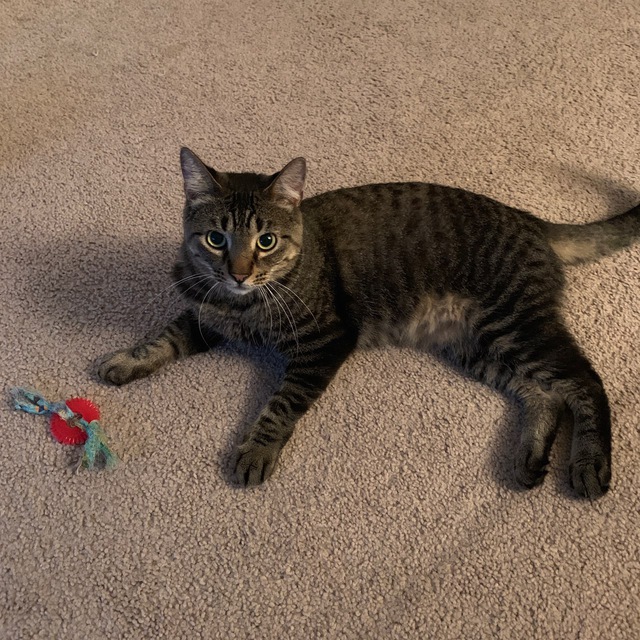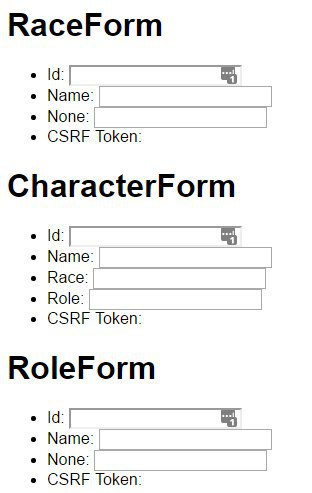 Alexander
Alexander
Currently we don't have a ready solution, but if you want some generic code, you can analyze obj._attrs_ or entity_class._attrs_ in order to see attribute definitions
 Micaiah
Micaiah
Where can I find all of the possible data types for columns, so I can map them to form types?
 Alexander
Alexander
Each data type has corresponding database converter class in dbapiprovider.py (the converter classes are inherited and redefined in specific providers such as dbproviders/sqlite.py)
 Micaiah
Micaiah
90% of the time you don't want a directly generated REST API
I agree, this is mostly just an experiment
 Micaiah
Micaiah
len("bla")
I worded that poorly, I meant the max length. For example, if you had a field last_name = Required(str, 15)
 Anonymous
Anonymous
anyway, in the case of making GUI Desktop applications. so, I have to call the pony instances object and put it in my GUI event ?
 Anonymous
Anonymous
example
@db_session
def myproductName(iproduct):
prdt = product[iproduct]
print prdt.name
def eventhandlercase(self,event):
iproduct = self.getvalue(onbuttonclick)
myproductName(iproduct)
is that correct?
 Alexey
Alexey
I worded that poorly, I meant the max length. For example, if you had a field last_name = Required(str, 15)
>>> from pony import orm
>>> db = orm.Database('sqlite', ':memory:')
>>> class E1(db.Entity):
... name = orm.Required(str, 40)
...
>>> db.generate_mapping(create_tables=True)
>>> db.E1.name.converters[0].max_len
40
 Alexey
Alexey
for the most cases it is 1
but in Pony you can have attributes that require more than one column in the database to store it
 Micaiah
Micaiah
Still trying to work out the best way to convert an Entity to a FlaskForm subclass, I was just going to go through each of the fields and iterate through a conversion function, but there are so many things to keep track of that the function becomes pretty crazy after just a few field types. I think I might be better off subclassing PrimaryKey, Required, Optional, and Set
 Cristian
Cristian
i am working with pony to read data from existing sqlite db, i got this error (comment has models) https://gist.github.com/ovnicraft/ccf6800a551d3cf67ffc7b5460be71fc
 Alexander
Alexander
@b00t5tr4p no, it is not necessary for entity to have id attribute, but it should have a primary key. If no primary key defined, default primary key attribute with id name added automatically. You can explicitly specify another attribute as a primary key
 Alexander
Alexander
example
@db_session
def myproductName(iproduct):
prdt = product[iproduct]
print prdt.name
def eventhandlercase(self,event):
iproduct = self.getvalue(onbuttonclick)
myproductName(iproduct)
is that correct?
It depends on the architecture of your application. You need to keep in mind that db_session scope should be short, and objects should be used within that scope. Typical use case for PonyORM is a web application, where objects are retrieved from the database during the processing of HTTP requests, and discarded when the HTML page is generated. If you want to develop a GUI application, the question is how many users can connect to the same database at the same time. If it is more than one user, you should have short db_sessions, and between them keep object ids instead of objects
 Alexander
Alexander
Hello!
I use postgres schemas.
_table_ = (schema, 'molecule')
and then I run generate_mapping(create_tables=True) on existing db i receive:
DBSchemaError: Table "db_data"."molecule" cannot be created, because table "molecule" (with a different letter case) already exists in the database. Try to delete "molecule" table first.
but on sqlite db this works fine
Looks like a bug in Pony, I'll try to fix it
 Alexander
Alexander
Still trying to work out the best way to convert an Entity to a FlaskForm subclass, I was just going to go through each of the fields and iterate through a conversion function, but there are so many things to keep track of that the function becomes pretty crazy after just a few field types. I think I might be better off subclassing PrimaryKey, Required, Optional, and Set
Subclassing Pony attributes looks like a brittle way to develop such a form generator tool. Maybe you need to keep a registry of { pony_attr : form_field } mapping instead
 Anonymous
Anonymous
okay. , I l try your suggest. Do you have any documentation that is refer to db_session for many users access in the same database?
 Alexander
Alexander
db_session documentation is here: https://docs.ponyorm.com/transactions.html
db_session specifies transdaction boundaries. If multiple users are working with the same database, each should work in a separate transaction
 Anonymous
Anonymous
and I could just use commit() between transactions in the same db_session, (if i don't want to separate the transactions)
 Alexander
Alexander
yes. If you use manual commit(), you can continue working with the same objects, but they may become out-of-date if another user did some changes
 Alexander
Alexander
And then Pony will check upon save that the object in the memory have the same data as the object in the database
 Cristian
Cristian
 Anonymous
Anonymous
so I don't have to write new schema in the online editor once I had already got the sql version
 Anonymous
Anonymous
Hi all, I'm having a hard time trying to get a sql like with multiple percentage signs: %str1%str2%str3%. I have this: users = select( u for u in User if user_input.join("%") in u.name ) but it doesn't work the way I expect.
 Alexander
Alexander
You can embed raw_sql fragment into your query:
like_str = '%str1%str2%str3%'
users = select(u for u in User
if raw_sql('u.name like $like_str'))
 Anonymous
Anonymous
my first query was wrong, this is the right one: users = select( u for u in User if "%".join(user_input.split()) in u.name )
 Alexander
Alexander
my first query was wrong, this is the right one: users = select( u for u in User if "%".join(user_input.split()) in u.name )
In that variant pony will escape % signs in order to keep Python semantics of in operation
 Lucky
Lucky
We don't use it already, but @mshekhter and I am looking to build an adapter to put sql data to an elasticsearch index. And the data structure returned looks perfect already. All left to to would be to map the datatypes to an elastic equivalent.
From what we found so far, we'd could use the json of the elements unchanged to push the data into the ES index.
For some reason
db._get_schema_dict() comes up empty: []
 Alexander
Alexander
No, typically a user is an entity instance from the database.
If you want to show all entities to any unregistered user, just set permissions accordingly
with db.permissions_for(Entity1, Entity2, ...):
allow('view', group='anybody')




